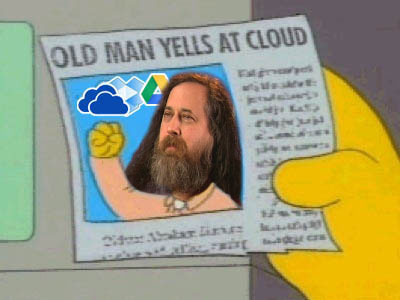Right to repair is more than repair
The Right to Repair movement has reached the mainstream, and is making political progress in half the States in the United State and President Joe Biden including it in a massive Executive Order. This is all great news and is a sign of a shift in culture, a positive shift. There are many positives to a culture that promotes Right to Repair:
- Better for the environment and sustainability.
- Gives consumers and users more options when it comes to repairs. This helps with wait times for repairs and lowers prices for consumers
- Gives consumers more control over the products they own
- Helps create and sustain a circular / local economy
- Helps teach tinkering is good for childhood development
- And much more (NYT paywall)
However, it is important to not forget that culture is what is actually changing. Consumers are realizing that Right to Repair is not just for tinkerers and hackers, but can save them money. Consumers dug society into a hole of hard to repair devices and manufacturers like Apple preventing component suppliers from selling to third party repair shops by buying these devices from manufacturers that didn’t respect the right to repair. Consumers got us here by choosing convenience and nice looking products over freedom and sustainability.
The decline of ownership
While society is collectively crawling out of the repair hole, slowly, consumers are digging many other holes that I believe should be left untouched. The issue is a decline in ownership, in digital goods and even hardware. The Right to Repair fits into it, we as owners of devices should be able to choose by whom they are repaired, but it gets worse. Here are some examples of society abandoning ownership of convenience.
Peloton Axes Free ‘Just Run’ Feature From Treadmill, Bricking It for Non-Subscribers. This sparked a massive backlash, yes, but the company has not undone its action yet. So now customers that bought a $3,000 “smart treadmill” cannot run on said treadmill unless they also pay a $39 a month service.
Everything is becoming a subscription. Netflix, Spotify, Disney+, Microsoft Game Pass, UPlay+, PlayStation Plus, etc. People don’t even rent content anymore, people rent access to services that may have the content they want. It is extremely convenient yes, and I have a few on that list, but it is a worrying future. So much control is given over to these companies in order for them to provide us convenience, do we really need it all?

Rise of Cloud Computing
With rapid growth of Amazon’s AWS services and Google Cloud Computing services and others it seems we don’t even need to own computers anymore. We already don’t need to install productive applications like Microsoft Word and Excel as they are found online, Microsoft Office 365 (Office online) for example, with a monthly subscription of course. Our photos and documents are conveniently stored on Dropbox and iCloud, accessible on any device, for a monthly fee of course. Microsoft is even considering an online Windows, Windows 365 where you can “Securely stream your Windows experience—including your personalized apps, content, and settings—from the Microsoft cloud to any device with your Windows 365 Cloud PC.”
But when Microsoft said “your” in that sentence they forgot to mention, its not actually yours. Cloud Computing isn’t anything magical, its just someone else’s computer. We are now choosing to abandon our computers and lease someone else’s computers, for convenience…and a monthly subscription.
We do not own our digital content anymore. Even when we “buy” digital content like video games on Steam and movies on Google Play Store we still don’t actually own them. For example from this Los Angles Times article: Column: When you buy digital content on Amazon or iTunes, you don’t exactly own it it talks about the iTunes store how
“Apple and its licensors reserve the right to change, suspend, remove or disable access to any iTunes products, content or other materials comprising a part of the iTunes service at any time without notice.”
This isn’t ownership. We merely have the privilege to read the eBooks and watch the shows the companies allow us at this time. Of course we cannot choose how to consume the content we just paid for, often times you need access to the internet to consume the content we bought. In my opinion your didn’t really purchase any digital content until you get a DRM-free version of that content.
Tesla disabled supercharging and software updates for a car after he repairs it himself. Video from YouTube channel @Rich Rebuilds found here. This one is an example of Right to Repair issues leaking into the industry where independent repairs are expected, automobile industry, not only is Tesla saying you should not repair your own car but they actively punish someone for doing so.
Conclusion
I believe that these are all really negative developments in our culture. We are letting these companies get away with taking away our freedoms to own what we purchased. Collectively we should resist and fight back against such practices. Right to Repair is more than just fixing smartphones, its a cultural movement that covers digital content and computing too. The fight is never over.